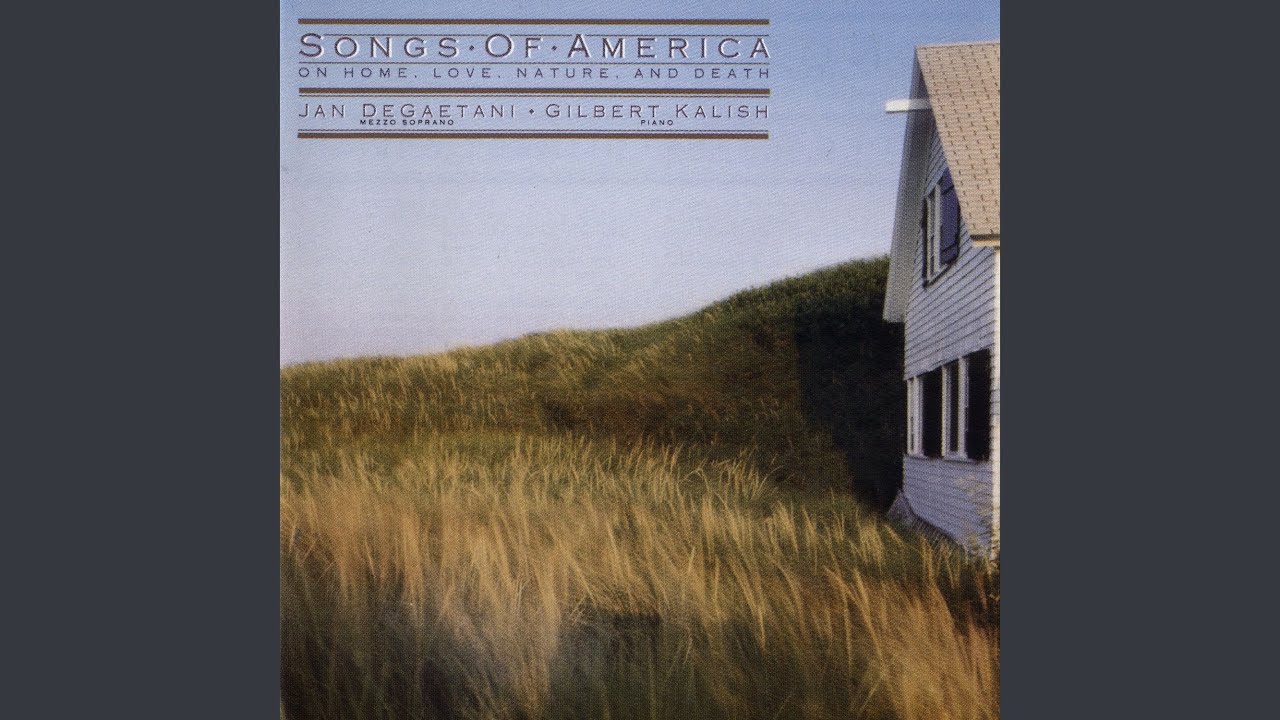Running from the House
White moon comes in on a baby face.
The shafts across her bed are flimmering.
Out on the land White Moon shines,
Shines and glimmers against gnarled shadows,
All silver to slow twisted shadows
Falling across the long road that runs from the house.
Keep a little of your beauty
And some of your flimmering silver
For her by the window tonight
Where you come in, White Moon.
I am so proud to call myself an American artist when I consider the four great ones who make up this recording: Ruth Crawford Seeger, Carl Sandburg, Jan DeGaetani, and Gilbert Kalish; each one an inspiration to me. If I were to write another dissertation on these four I’d call it American Artists: Keep a Little of Your Beauty (god, I am so good at titling my imaginary dissertations!). Each of these modernists are capable of producing great beauty in their art but are not afraid to employ this capacity to examine some of the ugliness of being American, of being human.
All these moon songs share in common an evocation of the quiet, hidden desires and fears that reside deep within—the parts of ourselves that we don’t trot out in the day. And most Americans, I have come to learn, are unwilling or incapable of examining the ugliness within themselves. No one is wholly beautiful. No one is without moral blemish, but you wouldn’t know it watching the commercials they make you watch on youtube before you can listen to Ruth Crawford Seeger songs.
This Sandburg poem is pristine in its control of form, diction, and concision. The sound of the words alone evoke the pleasure of beauty, but this surface beauty serves to sharpen the guilt and fear lurking under its surface. The text is too opaque to attach a narrative to it, but it evokes for me the shameful ambivalence and fear that come with being a parent. The silver light that kisses your baby’s forehead as she sleeps is the same light which casts the gnarled and twisted night shadows that follow the road up to your home. “[S]hadows/Falling across the long road that runs from the house” suggests the desire of the parent watching her sleeping baby to flee. It’s ugly. And the saddest part of all is that you know your little baby is going to grow up and learn about the ugliness of the world outside her window, and worst of all, the imperfection and ugliness inside you, her parent. The petition in the last stanza to the moon—“keep some of your beauty” —is a humble prayer for your baby knowing what hard work it is to protect your own innocence and hers. (And, you know, you are the baby, too.)
Ruth Crawford Seeger is to my mind one of the most under-appreciated American composers. No doubt her gender is the main culprit. Learning about her career, I am in awe of her independence and obvious courage to pursue her calling. She chased down Berg and Bartok in Vienna to show them her scores which indicates the influence such composers had on her. Her compositions demonstrate what might have been in American music were it not for the cultural alienation and cleavage from the 20th century Teutonic tradition that Nazism caused. Sadly her output is not what it could have been if she were Mr. Crawford, but the body of work she left behind stands up today as well as Copland, and better than Barber if you ask me.
And of course if you haven’t yet, I encourage you to listen to as many Jan and Gil recordings as you can find. They are such role models for me because they brought dazzling expertise to their wide-ranging repertoire of songs from many different centuries and languages, but somehow their American identity was ever, beautifully present. They approached music of the distant past and music of the moment with the same attention to expression and style. The immediate emotional specificity and intellectual weight of this recording demonstrates what they were about.



0 Comments